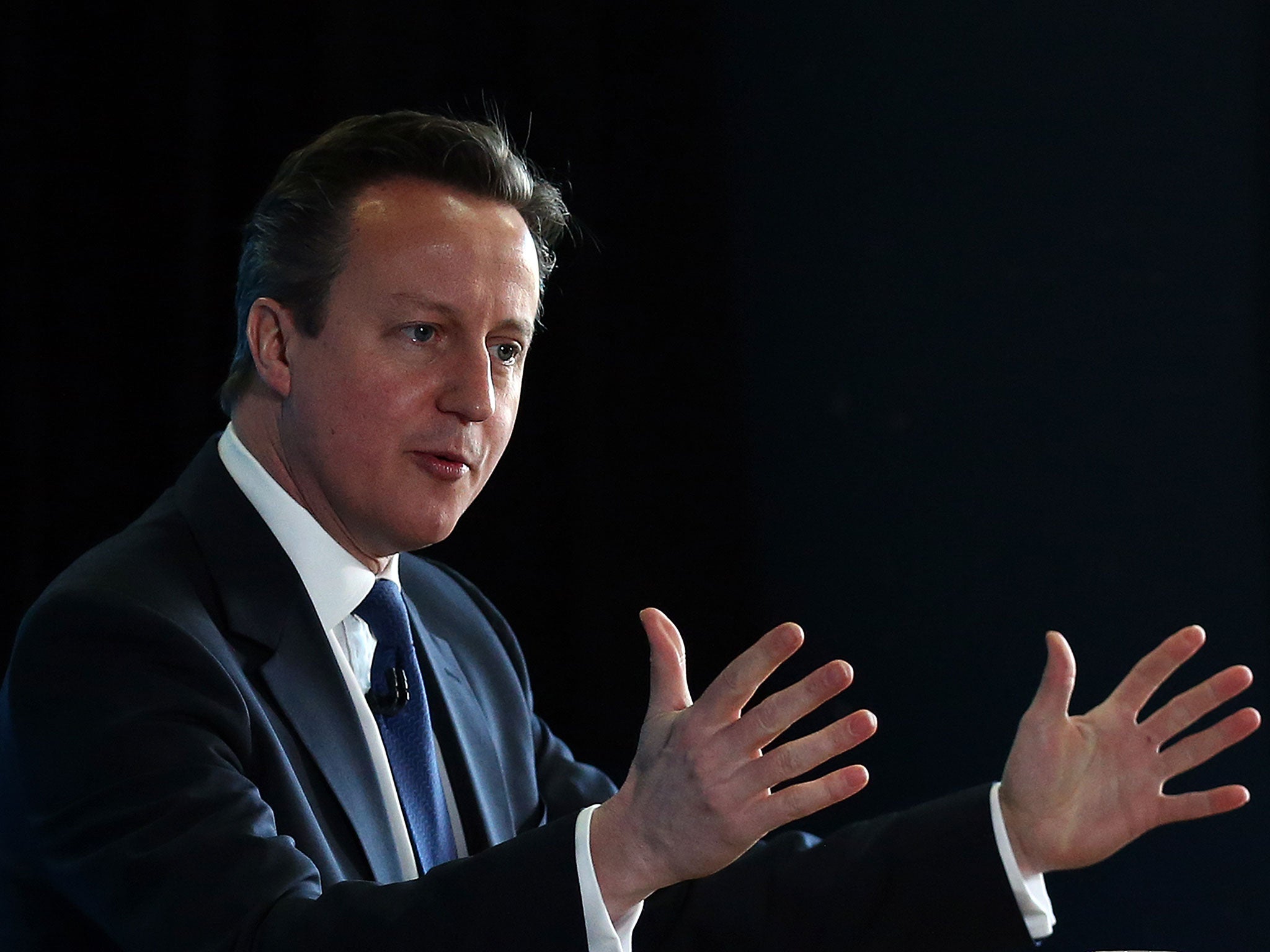David Cameron: We can still cut immigration to below 100,000 a year
The Prime Minister will make the pledge despite the fact that net migration is now at its highest level for nine years

David Cameron will reject calls for the Conservatives to drop their target to cut net migration to below 100,000 a year even though it has soared to almost three times that level.
The Prime Minister will go into the May election with his 2010 promise in tatters, official figures confirmed today. The Office for National Statistics (ONS) announced a net flow of 298,000 migrants to the UK in the 12 months to last September --up from 210,000 in the previous year. Net migration is now at its highest level for nine years and 54,000 higher than when the Coalition was formed.
In a further embarrassment for Mr Cameron and the Home Secretary Theresa May, the last immigration statistics before the election showed a rise in people coming from countries outside the EU, which ministers previously claimed to have got under control.
The ONS said 624,000 people arrived in the year to September --up from 530,000 in the previous 12 months. The number of non-EU citizens went up by 49,000 to 292,000, and the number of EU citizens rose by 43,000 to 251,000. Around 327,000 people emigrated in the same period.
Ministers admitted the figures were “disappointing” but argued that the UK’s strong economy made it a magnet for job-hunters. William Hague, the Commons Leader, described the statistics as “a problem of success.”
Allies suggested Mr Cameron would not abandon the target, and that a majority Tory government would take tougher measures to control migration which had been blocked by the Liberal Democrats inside the Coalition. The Prime Minister still believes it is the right “ambition” to reduce net migration to tens of thousands but accepts that it will take longer than expected to achieve it.
James Brokenshire, the Immigration Minister, said: “We have been blown off course by net migration from within the EU, which has more than doubled since 2010. That's why we need to continue to crack down on the abuse of EU free movement and continue our reforms to make our welfare system fairer and less open to abuse.”
Yvette Cooper, the shadow Home Secretary, said: “Despite all the promises and rhetoric from David Cameron and Theresa May, their net migration target is in tatters. He chose this target and said it was his promise to the British people. No wonder there is so little trust in the Government's immigration system.”
Nick Clegg, the Deputy Prime Minister, said the Tories had to "suffer the embarrassment of having failed spectacularly to deliver". He told LBC radio: "I said to David Cameron he shouldn't make the commitment because it was inevitable he was going to break it because you can't control the net figure.”
Steven Woolfe, Ukip’s migration spokesman, said his party would bring in a cap of "50,000 for those who have the right to work with the option for permanent residence here" to cut overall numbers by 167,000 a year.
Ryan Shorthouse, director of the Bright Blue think tank of Tory modernisers, described the target as “ arbitrary, unreliable and indiscriminate.” He added: “It is failing to reduce public concerns about immigration….The target needs to be revised so, in particular, we don’t see a reduction in migrants that enrich Britain both economically and culturally.”
Sunder Katwala, director of the pro-immigration British Future think tank, warned: “If the Prime Minister remains in denial about the broken target, he is setting himself up for five more years of failure. It is already clear there is next to no chance of meeting the same target in the next parliament either. It’s absurd to think that anyone would believe this broken promise if it’s made again.”
Number crunching: the movers
There were significant increases in immigration of non-EU citizens – up 49,000 to 292,000 – and EU citizens – up 43,000 to 251,000.
Experts flagged another statistically significant increase in Romanian and Bulgarians arriving in the UK – up to 37,000 from 24,000 in the previous 12 months.
Of these, 27,000 were coming for work, a rise of 10,000 on the year ending September 2013, the ONS added.
Around 271,000 people came to the UK to work, up 54,000 on a year earlier, while the number coming to study rose from 175,000 to 192,000.
Join our commenting forum
Join thought-provoking conversations, follow other Independent readers and see their replies
Comments